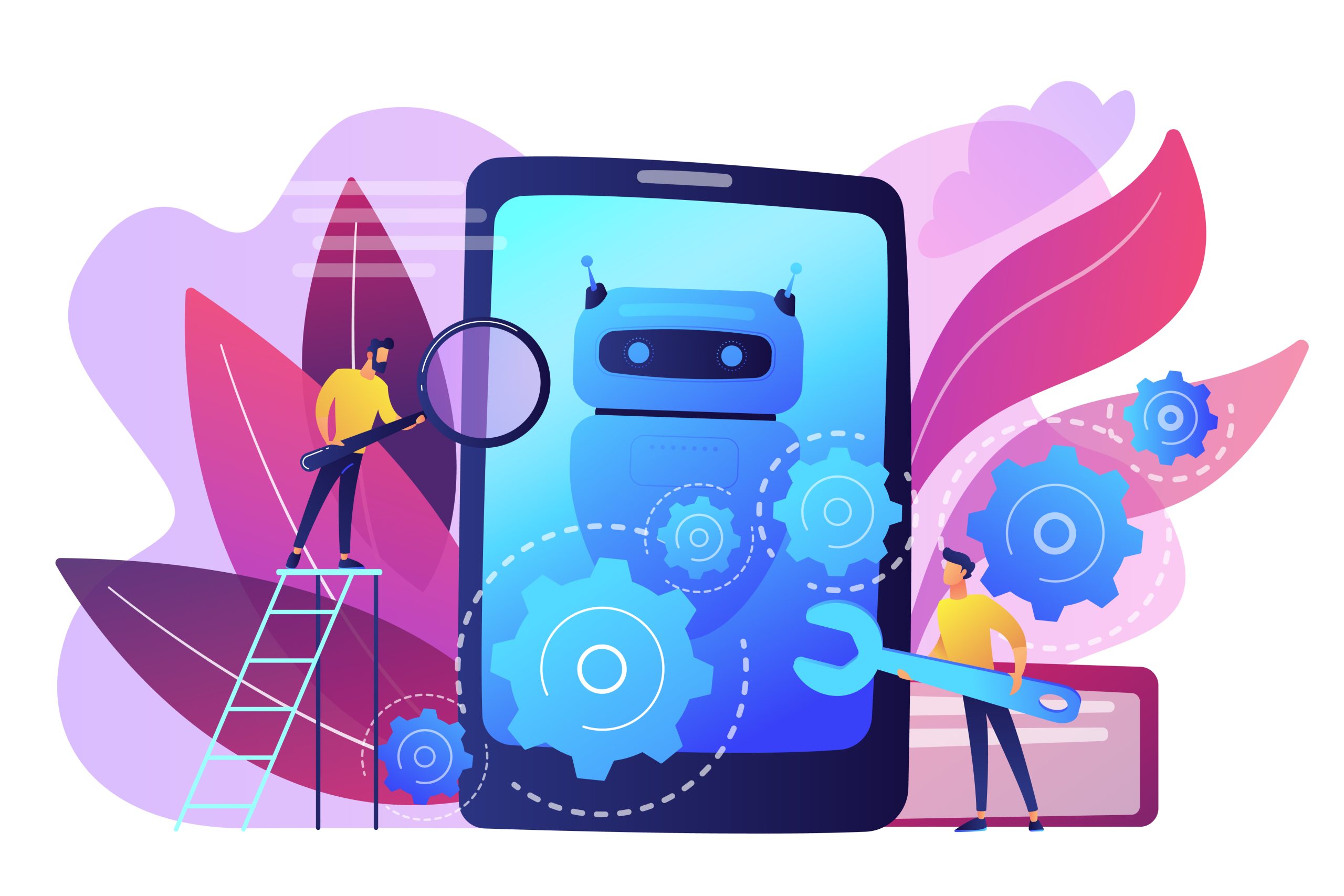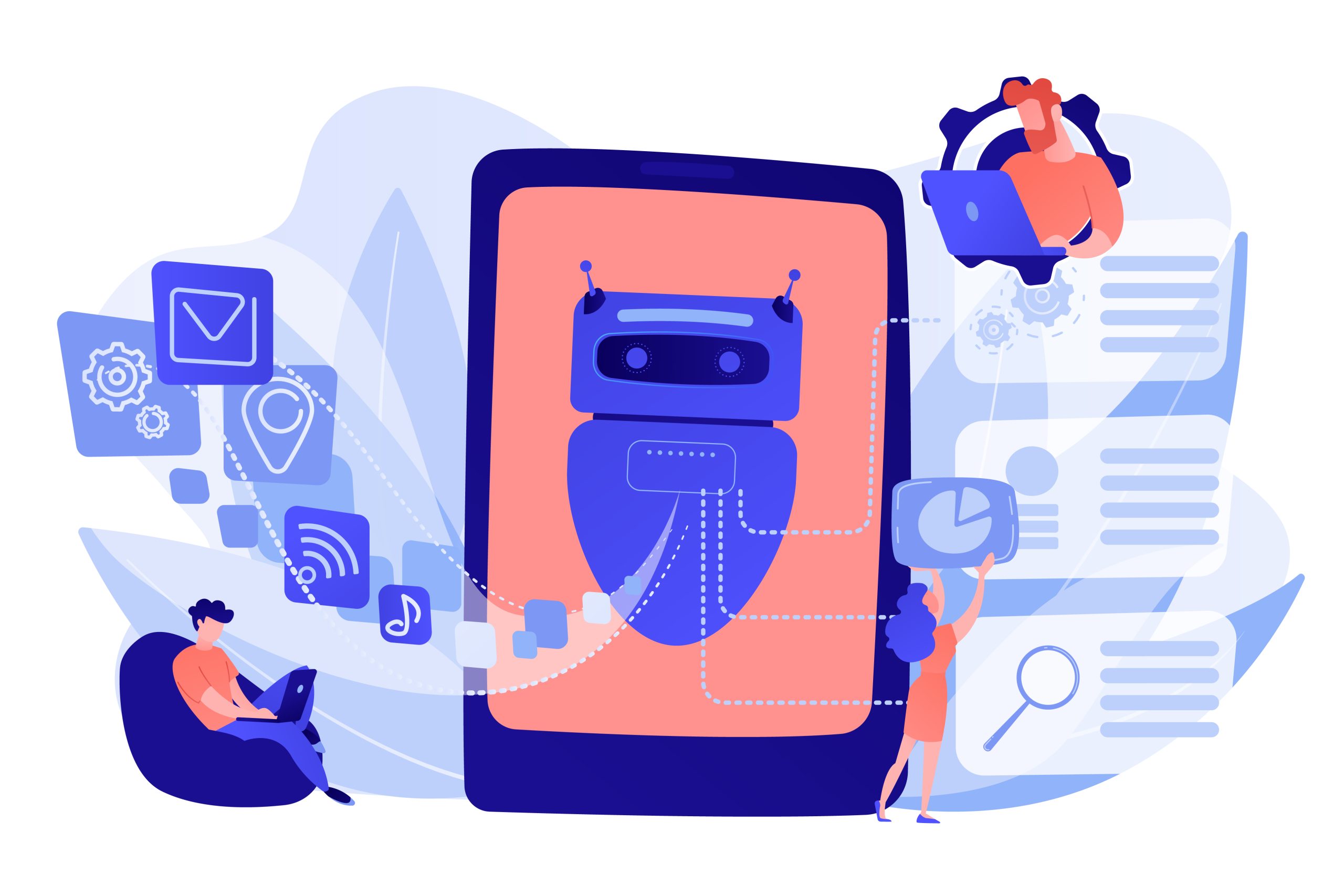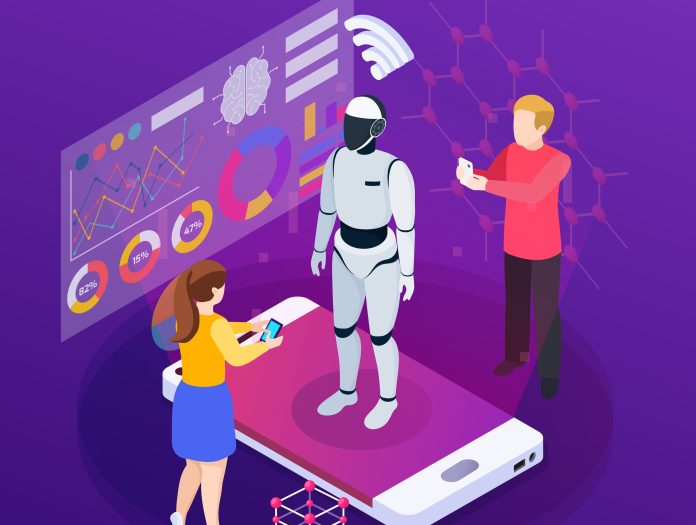Artificial Intelligence has been a well-known technology for a decade, but in recent years, it is booming on a large scale. Not only is it booming, but also a consequential game changer for mobile applications. Being a mobile application owner, if you require to upgrade the user experience and the functionality of the app, artificial intelligence in mobile apps is no less than a blessing.
Apart from personalizing UI/UX, AI plays a vital role in enhancing security features and automating workflows. The benefits of incorporating AI in mobile apps are numerous. If you don’t opt for AI-based mobile apps for your business, you may be left behind in the race.
So, in this article, you will read what are the essential roles of artificial intelligence in mobile apps. It will help you make correct decisions at the right time for your business mobile apps.
What are the critical roles of Artificial Intelligence in mobile apps?


When the talk is about AI-backed mobile app development, it means the utilization of NLP (natural language processing), ML (machine learning), and CV (computer vision). With the combination of machine learning and natural language processing, it is possible to do predictive analysis based on user inputs. Be it any kind of app development, whether native, web, or hybrid mobile app, AI has much to offer.
With AI, you can create intelligent mobile apps to simplify human needs. One of the most common roles of artificial intelligence in mobile apps is automatic customer support. Other than this, there are many ways to use artificial intelligence in mobile apps to engage more users.
To provide a user-centric experience
One of the prime roles of artificial intelligence in mobile apps is to collect and process user data. This processed data is used to enhance the user experience. One of the greatest and most well-known examples is Spotify, a famous application that provides an amazing recommendation system.
And all this was not possible without the use of artificial intelligence in mobile apps. Apart from gathering data to give personalized experiences, AI has full support for automation which improves the usability of the apps. Chatbots based on AI give the fantastic experience of seamless interactions. Some famous examples of voice-based chatbots are Siri and Alexa to fulfill the user’s commands.
To give better security and fraud detection
In this era of the digital revolution, fraud is a huge problem for many organizations. Fraudulent transactions can burn a big hole in the pocket that costs a billion dollars for many businesses. And apart from monetary loss, brand value and reputation also get affected. It’s crucial to find an easy way to tackle such frauds and artificial intelligence is well capable of making this possible.
Artificial intelligence can help fight fraud by analyzing user patterns and behavior in concurrent time. With this behavior analysis and anomaly detection, fraudulent activities can be prevented to a great extent. So, AI-based powered features play an important role in maintaining the confidentiality of the mobile app data.
Automated testing becomes easy
Automated testing becomes a necessity in the development process for the smooth and correct working of the mobile app. It was done manually by the team of developers and testers. Nowadays, many tools are available in the market to make the testing process automated. But types of testing methods (Unit testing, Integration testing, Functional testing, etc.) are so many that it becomes difficult to go for the best.
That’s why automated testing tools are available now to make testing easier and smoother. Artificial Intelligence and Machine Learning algorithms can help to analyze big databases, monitor usage patterns, and generate test results. Automatic testing with the amalgamation of AI and ML speeds up the performance of mobile apps.
Provides image and speech recognition feature


The next one of the well-known roles of artificial intelligence in mobile apps is to give image and verbal recognition ability. For example
Biometric authentication
AI-based recognition technology makes it possible to unlock mobile devices, replacing finger and pattern locking.
Facial recognition
Another AI-backed recognition technology is facial recognition which provides a secure and fast way of unlocking devices.
Voice assistants and speech-to-text ability
Artificial intelligence in mobile apps provides speech recognition technology that converts speech into text to interact with voice assistants. This technology is well capable of providing hands-free access, thus increasing the accessibility of your mobile apps.
Enables predictive analysis
Predictions and insight analysis play an important role in gathering user data based on their usage patterns and behavior. This way mobile apps can foresee the user’s needs, and give real-time recommendations.
Predictive analytics are one of the most valuable tools to give personalized user experience and AI fulfills this role easily. Your customers can get recommendations based on their past purchases and you can provide them with related offers. Hence, predictive analytics enables businesses to get more potential users and get better revenue.
Provides better search engine optimization
Artificial intelligence can also be beneficial for the SEO of both mobile apps and web apps. AI has become a base component of many SEO algorithms as it is capable of doing advanced data analysis. With such data analysis, one can make a robust SEO strategy.
AI in search engine optimization can help to find trending topics and cover the content gaps wherever needed. You can boost SEO for your digital business faster and more efficiently to rank your business higher and higher.
AI is ruling the world of mobile app development!
Summing up the discussion with the aforementioned roles of artificial intelligence in mobile apps. Artificial intelligence has undeniably transformed the world of mobile apps. An AI-powered app is capable of giving greater advancements and limitless growth possibilities.
AI is becoming a smarter, and quicker choice for many mobile applications to be more successful in revenue generation. The success of any mobile app is not cake work in this competitive digital world. However, it can be with the incorporation of artificial intelligence in mobile apps.





